-
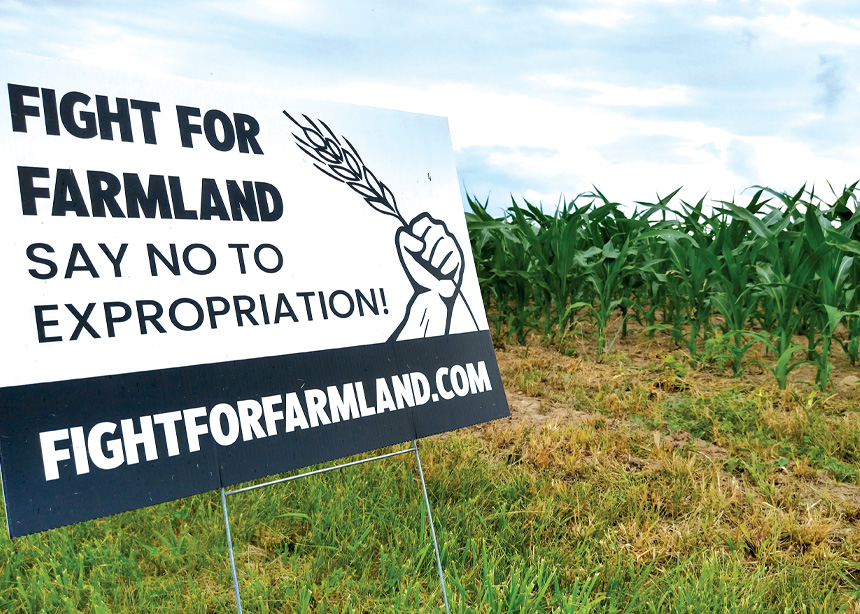
From fresh cabbage to ‘shovel-ready industrial land’
On an average day, approximately 320 acres of Ontario farmland are lost to development and, apparently, now it’s our turn. This spring, the farmers across the road from the 100-acre farm where I grew up, a 20-minute drive west of Kitchener, received a visit from an employee of an American company that handles farmland expropriations.…
-
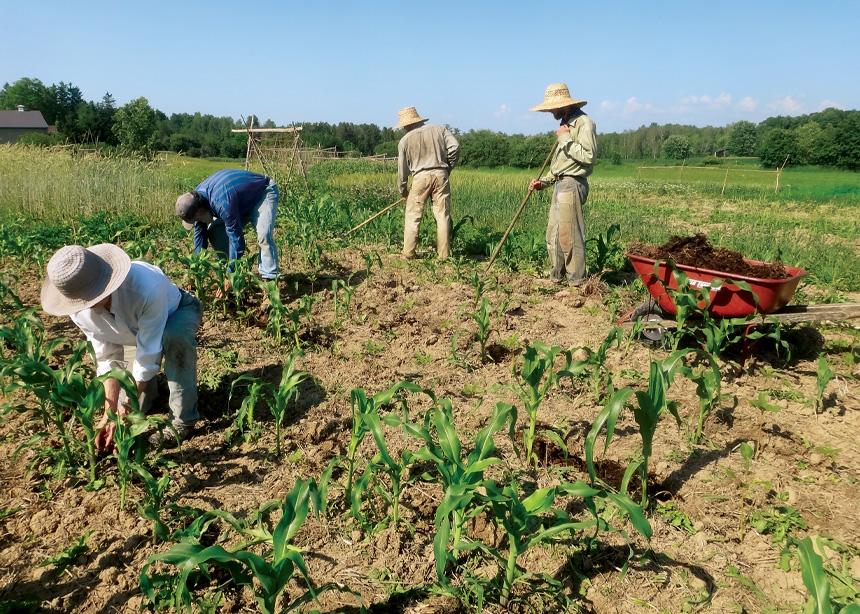
Pressed into the ground
“It’s nice to get to choose our humility,” my father reflected recently. Sometimes, however, we don’t get to. What do we do when we feel forced to be humble—what we often call humiliated? Our dictionary says the words humble, humility, humiliate, human, homage and humus all share a common etymological root relating to earth and our…
-

Working on different ends of the agriculture spectrum
For many students, the outdoor education class at RJC High School was fun, memorable and character building. But for most, the skills aren’t ones they now use in their everyday life. For Emily Hand, a 2002 graduate, however, that is exactly what happened. These days, the best words to describe Hand’s life are “homesteader” and…
-
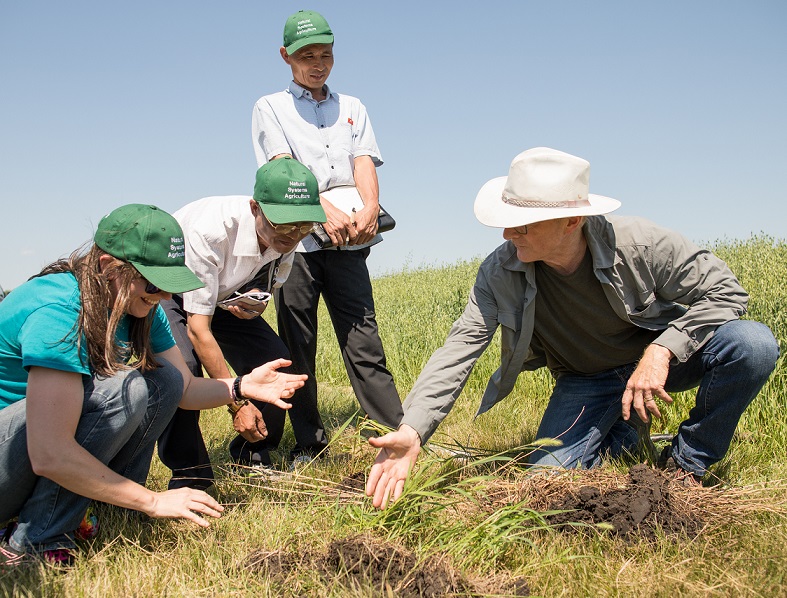
North Korean farmers visit Manitoba, build relationships
In those first few minutes after arriving at Syl’s Restaurant in Carman, members of a delegation from North Korea sit at the edge of the outdoor eating area, where they see local resident Rene McFarlane at a picnic table with her son Lane. The visitors move toward McFarlane and, with the help of a translator,…
-
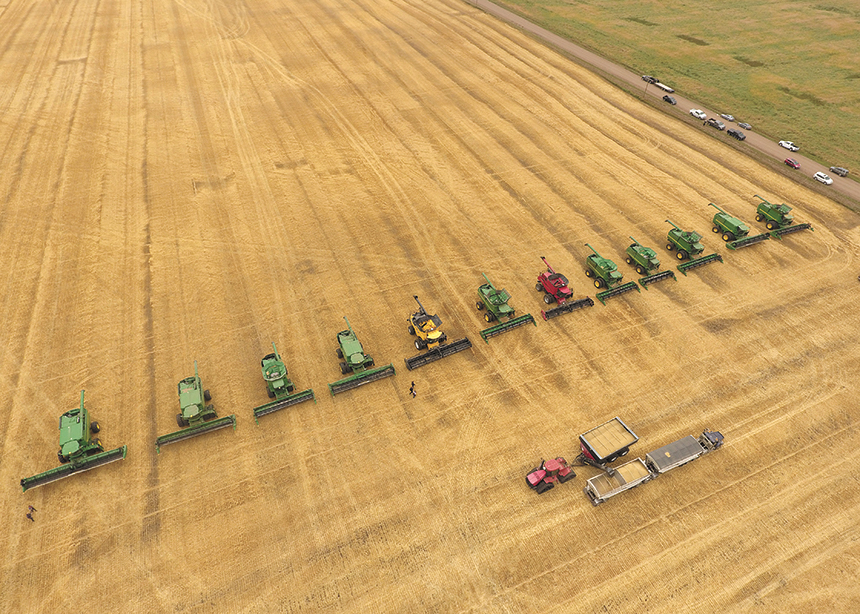
Food for thought!
Food for thought! There is something awe inspiring about big machines and, when used for a good cause, the ‘awesome factor’ is exponential. On Sept. 9, 2018, 14 massive combines completed a 135-acre barley harvest in two hours, just beating the rain. The ‘big field’ harvest on land donated by Pembina Pipelines East of Gibbons,…
-
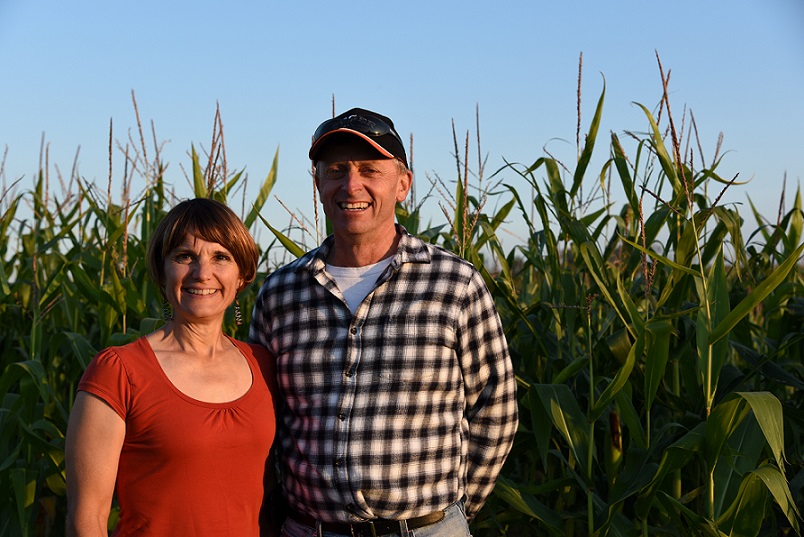
Bridging the rural-urban divide to help end world hunger
Fifteen acres of wheat and a good cause—that’s what brought nearly 200 people together in Pembina Crossing, Man., in June 2018. Some drove two hours from Winnipeg, others five minutes from their rural homes. Most came from Anglican church communities in Winnipeg. “It was a moment where I felt like I was part of something…
-
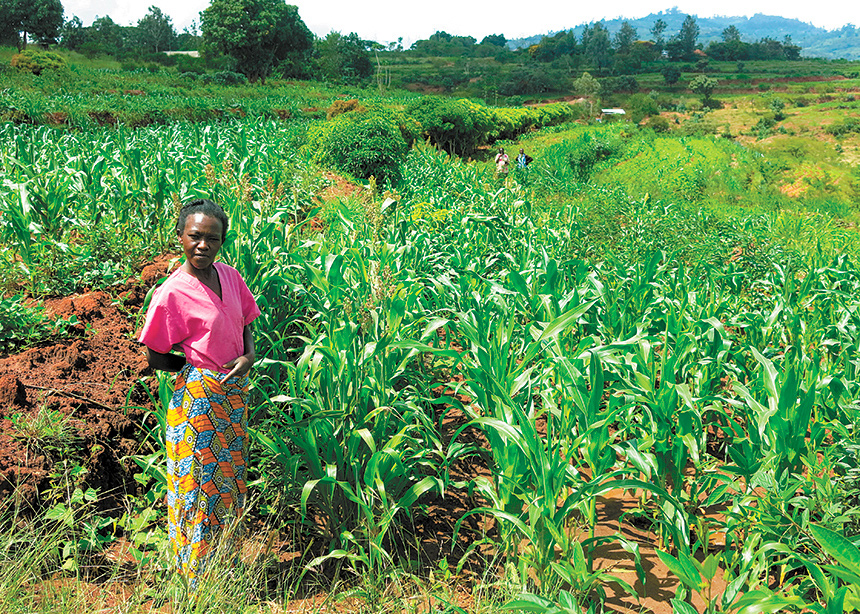
Foodgrains Bank brews climate storm on Twitter
The Canadian Foodgrains Bank walks a fine line on climate and walks it well. A recent and rare slip demonstrated the tensions it, like the rest of us, must navigate. The Hill Times, an Ottawa newspaper aimed at political insiders, wanted articles on global food issues. The Foodgrains Bank helped arrange for such articles by…
-
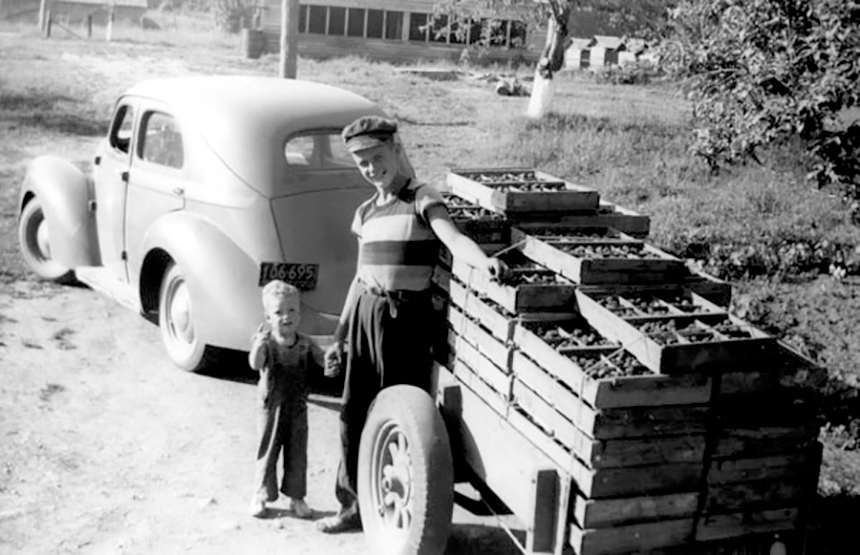
Hauling strawberries
In February 1928, the first trainload of Mennonite farmers from the Prairies arrived in Yarrow, British Columbia, with prospects of farming the newly accessible land in the Fraser Valley. The introduction of raspberry and strawberry farming in the early 1930s increased the viability of these farms. The photo shows Len Doerksen (b. 1936) with his…
-

‘The level of mechanization was amazing to witness’
For John Mbae, a Canadian Foodgrains Bank conservation agriculture technical specialist based in Kenya, a visit to the Canadian Prairies was informative and inspiring. “I had the privilege of staying with a farm family in Saskatchewan,” says Mbae. “Although their farm operation was very large and profitable, they were very approachable and hospitable to me,…
-
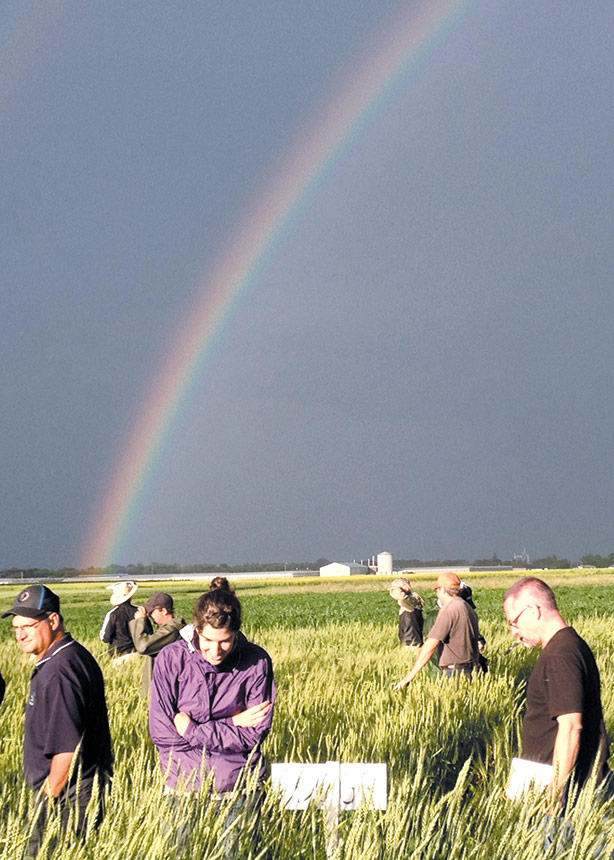
Farmers, thinkers, eaters
Agriculture is changing. Perhaps it always has been. Markets realign. Tastes shift. Ideas evolve. Climatic conditions rearrange. Mennonites are part of the change—as farmers, thinkers and eaters. Joanne Thiessen Martens notes another change. She grew up on a farm near Austin, Man. Then she studied agro-ecology out of an interest to work overseas, which she…
